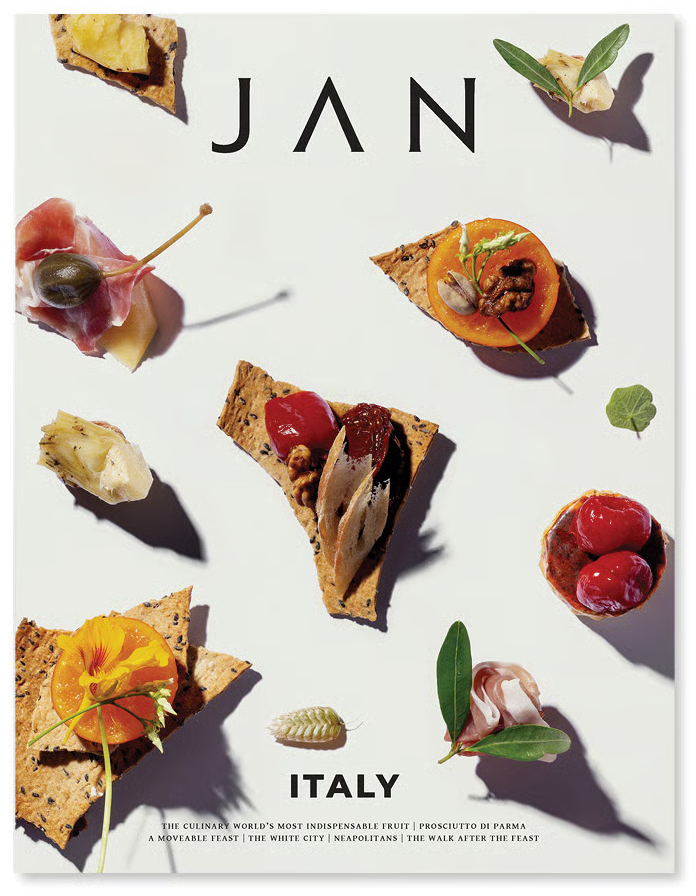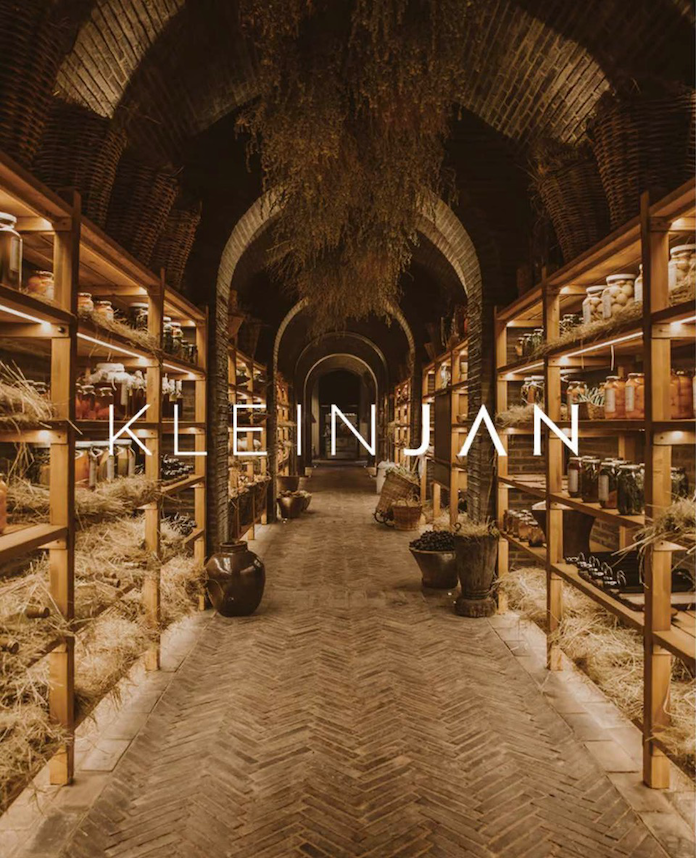Being Vegan
Carina Garrett joined the JAN Restaurant team in 2018 as sous chef after making a name for herself in Franschhoek, one of South Africa’s top culinary destinations. She’s not just a chef, though, but a thinker. And since a young age, she has contemplated the ever-evolving role of meat in our lives. Carina is vegan. At a South African restaurant. In France! Her home country is the culinary birthplace of bobotie, the sosatie, snoek and braaivleis (I mean, in certain circles, chicken is considered a vegetable), and her adopted France; to boeuf bourguignon, coq au vin, cassoulet and duck confit. Restaurant JAN, then, comes about as close to being a vegan restaurant as Madonna does to being a virgin. So, what does it mean to be a vegan chef working at a restaurant that is everything but? And more so, what does it mean to be vegan?
What prompted you to become vegan?
I have always felt strongly about the responsibility we as a collective have to live consciously. The cruelty to animals that is too often found behind the scenes was enough of a reason for me to become vegan. The grossly negative environmental impact caused by the meat and dairy industry is also a major contributor to my decision to live this way; not to mention the health benefits. I made the crossover at the age of 16. My inspiration was Alicia Silverstone’s book, The Kind Diet. I had the privilege of a supportive family as well as all the information needed for my journey at my fingertips.
How would you define Veganism?
Veganism is the active rejection of products that rely on the any form of exploitation of animals. A vegan lifestyle means not only excluding animal-based food stuffs but also any other products, like cosmetics and our choices in clothing, like leather, wool and silk. In a world that is still very much addicted to unsustainable practices, my choices must still be practical and possible. I push my personal envelope by staying informed and so, too, reserve my power as a consumer. What I find really interesting is that veganism is the fastest growing lifestyle movement ever!
How flexible are vegans?
I have found that most vegans are completely militant about their lifestyle choice, almost overbearingly so. Most vegans are constantly announcing themselves. When I started being vegan I was incredibly strict as well, but being a sous chef, I have to taste everything in the kitchen. So, over the years I have become much more flexible. I aim for balance in a shifting world. I am very strict during the week but at the weekend, I do “cheat”.
What does the vegan lifestyle look and feel like? What are some challenges you face in terms of food and what are your more personal challenges?
My change to veganism was immediate. I didn’t wean myself off of anything. I dived right in. Personal challenges I experienced at first were obtaining substitutes such as tofu, seitan and other protein-rich products. Being vegan in 2010 was much more difficult than it is now. There was not as much accessibility to vegan alternatives as we have now. One of the biggest questions I get is, “where do you get your protein from?” And this is a very valid question, because of the still-prevalent collective conditioning that meat is the richest form of protein even though utterly false.
Can you get adequate protein in natural quantities from plant-based sources like peas, legumes, etc?
Yes! Lentils are a great option, adding 9 grams of protein to a dish with just a half a cup, not to mention the fibre! Black beans add 8 grams per half cup and is loaded with antioxidants. The millennial-hyped, pseudo grain quinoa adds 8 grams per cup and is gluten-free and stock full of magnesium, antioxidants and fibre. Then there are, but not limited to, amaranth, green peas, artichokes, hemp seeds, spinach, broccoli, and asparagus!
Sources of protein are a very big concern at the beginning but in all seriousness, we should also be focusing on other nutrients as well. The biggest nutrient concerns for me were omega 3s and fatty acids, Iron, Vitamin B12, D, and Calcium. These can all be found in beans, legumes, nuts and seeds, and fungi.
For example:
Omegas: chia seeds, ground linseed, hemp seeds, walnuts.
Iron: pumpkin seeds, spirulina, tomato paste, white beans
Vitamin B12: white button mushrooms, fortified plant-based ‘milk’, supplements of Vitamin B12 in small doses.
Vitamin D: selected mushrooms like Maitake and shiitake, fortified almond ‘milk’ and obviously, getting outdoors.
Calcium: kale, oats, turnip greens, mustard greens, almonds, collard greens.
You often read about how some vegans feel socially rejected by their friends (not getting invited to dinner anymore, and so on). What is your experience?
Choose better friends! I say this with a bit of a tongue in my cheek, but I can’t help feeling that there is much truth in this. Your people, if they are really your people, should be nothing short of supportive of your lifestyle choices even if they do not agree with them. If the difference is too fundamental, let them go, or go without them, until you find those who share your sentiments enough for a healthy camaraderie.
I have been lucky working in the hospitality industry, especially having been surrounded by mentors and friends that are at the forefront of cuisine and that treat food as it should be treated; with love, experimentation and colour. They get it.
What were some of the biggest changes you experienced?
DETOX
In the beginning, I suffered an extreme detox; headaches, body pain, name it. This dissipated after about 3 days. After this, I felt lighter and I also found I needed to drink less water as meat consumption results in your body using up to 3 litres of water to digest per day. A well-known phrase that comes to mind: “Sometimes things have to become worse before they get better”. My skin became clearer and I lost a considerable amount of weight. The detox was totally worth it.
ENERGY LEVELS
When your body balances out from the detox your energy levels increase dramatically, I also no longer tend to experience the late afternoon slump. Having all this energy encouraged me to be more active. I started running, doing yoga regularly and I spend a lot more time outdoors.
MORE FUN, BETTER HEALTH & FANTASTIC MOODS
Since going vegan, I see food in a completely different light, not only because I’m a sous chef. There is so much room to play than what convention dictates. I hardy take ill! I feel lighter and fresher more often, and that includes my overall mood.
What should someone wanting to adopt the vegan lifestyle watch out for?
Stay informed, there are still those that are taking shortcuts just to make a pound. Be very wary of large crops like soy, corn, wheat and palm oil, as they cause a lot of deaths by deforestation and harvesting, not to mention the environmental damage. Shop local and from small harvests that are hand-picked and that use pesticides consciously. Avoid GMOs (genetically modified organisms). Eat seasonally. Avoid overly processed foods. Do your research. Avocados, for instance, are not strictly vegan because of the tendency to exploit bees in the growing and harvesting process.
In the end, veganism is a lifestyle choice that does have its health benefits, but that can only be successfully adopted when adequately researched and carefully implemented, preferably with the aid of a healthcare practitioner or nutritionist. The environmental impact of someone following a vegan lifestyle is lower than their omnivorous counterparts, which is often the main driving force behind the decision to adopt this lifestyle. Before making a drastic lifestyle change, be clear about what you want to achieve by making the change.


















